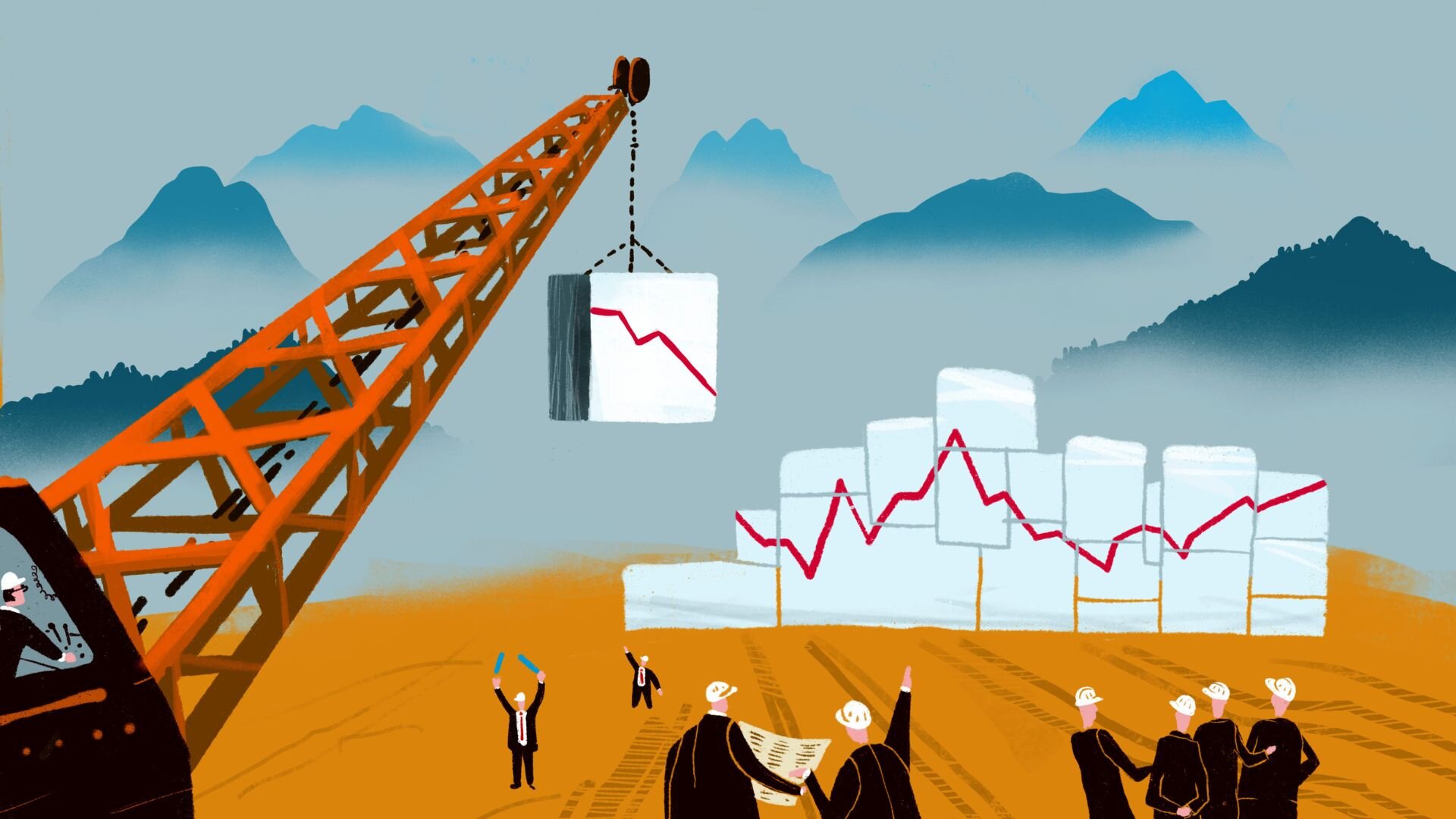
Trades businesses play an important role in the economy but often face vulnerability to broader financial factors outside their control. Economic cycles, downturns, and industry-specific trends can all impact demand for trade services and introduce high-stakes challenges to profitability and growth. However, proactive business owners have strategies to bolster resilience even during uncertain times.
While economic headwinds are challenging to predict and prevent, tradies can take targeted steps to mitigate risks and turn downtimes into opportunities. This guide outlines approaches for navigating financial obstacles through diversification, strong customer relationships, cost optimisation, marketing, and long-term planning and remaining adaptive as conditions change allows trades operations to stay competitive and protect their futures. Ultimately, embracing proactive practices is key to overcoming challenges and emerging even stronger on the other side of economic fluctuations.
Understanding Economic Challenges
Economic Cycles and Their Impact
All economies experience cycles of growth, decline, and stability that impact businesses. Growth periods see high demand and spending, while downturns reduce opportunities. These cycles can last months to years, and their effects vary between industries.
During economic contractions, customers may pause non-essential renovations or delay maintenance jobs. Projects are scrutinised more closely for costs. Trades can see decreased demand, price pressure, and slower payment rates from cash-strapped clients. Tradies need to understand cycle patterns and adjust their plans accordingly.

Industry-Specific Economic Factors
Certain triggers influence construction, manufacturing and service industries differently. For example, housing starts are directly tied to real estate market trends. When interest rates rise or supply exceeds demand, homebuilding falls, hurting related trades like carpentry, plumbing and electrical.
Durables manufacturers may feel early impacts from reduced consumer confidence and spending. Infrastructure sectors rely on government budgets and funding cycles. International trade policies and export/import costs can also impact industrial trade. By keeping abreast of industry-relevant economic indicators, traders can foresee challenges and pivot strategies proactively. Foreseeing demand shifts allows timely adjustments to operations and offerings.
Strategies for Navigating Economic Challenges
There are several proactive steps trades businesses can take to strengthen their resilience during periods of economic uncertainty. Diversifying revenue sources, maintaining strong customer relationships, and implementing effective financial management strategies can help reduce risks.
Revenue diversification is key to lessening reliance on any single income stream. This entails expanding service offerings to include complementary areas like consultation, equipment rental, and maintenance contracts. It also means exploring different client sectors and markets to broaden your customer base. Additional avenues for diversification include online sales of trade-related products or targeting new international opportunities.

Customer relationships become increasingly important in challenging times. Providing exceptional service, prompt communication, and on-time project delivery builds long-term trust and loyalty with existing clients. Offering value to priority patrons through selective discounts can preserve meaningful connections when new work may be limited. Developing maintenance contracts provides reliable recurring revenue from loyal customers.
Sound financial practices are also vital. Preparing cash-basis budgets allows spending to be tracked against projections and issues addressed proactively. Monitoring metrics like profit margins, debt, and cash flow pinpoints performance areas to improve. Streamlined bookkeeping facilitates cost tracking versus estimates. Negotiating flexible payment terms and conserving available credit protects against slow client payments during downturns.
By diversifying revenue sources, nurturing customer relationships, and implementing strong financial management, trade businesses can develop greater resilience to economic headwinds. This proactive approach mitigates risks and positions the company well for future growth opportunities.
Marketing and Business Development Strategies
When economic conditions create uncertainty, marketing and networking take on added importance, reaching the right customers and making valuable connections can lead to new opportunities.
Targeted digital strategies are efficient ways to find qualified prospects. Search engine optimisation and pay-per-click ads boost your online visibility. Engaging content on platforms like Facebook and LinkedIn that speaks to customers’ needs, pain points, and budgets can attract attention. Be sure to use high-quality images and Calls to Action to drive results.

Actively participating in industry organisations is also beneficial. Groups like construction networking clubs provide access to others in the field. You never know what referral or partnership might come from meeting fellow members. Attending trade shows and conferences is another way not only to learn but also to make valuable face-to-face connections.
Strategic partnerships can take many forms, like combining resources on larger projects or referring customers to each other for complementary services. This broader collaboration expands your joint reach. Thinking creatively about alternative sales channels is important, too. Consistently nurturing any leads you acquire and promptly responding to inquiries ensures a steady stream of prospective work.
By leveraging digital strategies, industry involvement and creative sales approaches, your business can tap into fresh business opportunities even during less certain times. Staying proactive with marketing and networking is key.
Planning Ahead for Long-Term Success
While daily operations require focus, taking a strategic view of your company’s future is crucial. This includes setting goals, contingency planning, and regularly reviewing strategies.

Goal Setting and Strategic Planning
Creating 1-3-year goals in key areas like revenue, profit margins, and service offerings helps direct efforts purposefully. Developing a written strategic plan with quantifiable objectives, SWOT analysis, and tactical steps provides direction.
Contingency Planning
Preparing for various economic scenarios reduces risk. What-if analyses identify vulnerabilities and mitigating actions. For example, lining up available credit can prepare for slower payment periods.
Reviewing and Adjusting
Markets are dynamic - regularly revisiting your plan allows you to adjust quickly to new realities. Annual reviews track key performance indicators versus goals and flag successes/shortfalls prompting strategy refinement.
Seek outside perspectives when needed. Consultants, industry veterans, or business coaching experts provide objective expertise to help optimise processes, explore opportunities, and advance your operations to the next level.
Taking a Proactive Approach: Strategies for Strengthening Your Trades Business Beyond Economic Cycles
While economic challenges are difficult to control, proactive trade contractors have strategies to strengthen their position. Diversifying income, nurturing lasting client relationships, implementing prudent finances, pursuing new leads creatively, and planning strategically enhance resilience. These approaches, coupled with seeking advice from experienced advisors, can futureproof operations and open doors to greater growth.
If your trades business seeks sales or strategic consulting to optimise operations or navigate current market conditions, start by contacting TradesFormation. Their experienced industry advisors provide guidance tailored to your unique situation to h elp strengthen your business for long-term success. From sales coaching to one-on-one business mentoring - we have it all!




